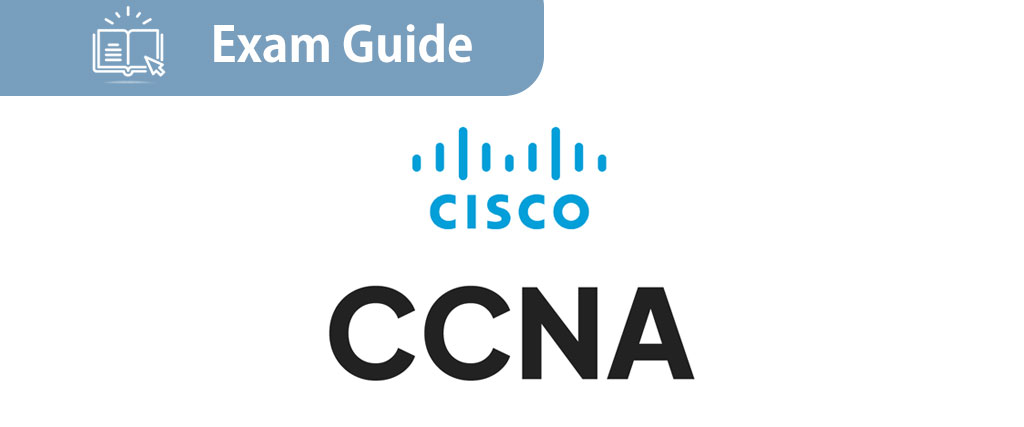
In the world of IT networking, few certifications command as much respect as Cisco’s CCNA (Cisco Certified Network Associate). As of 2025, the demand for skilled network engineers continues to skyrocket — global research from CompTIA and Cisco projects a 25% increase in networking job roles by 2034.
If you’re aiming to break into the world of IT infrastructure, cloud, or cybersecurity, the CCNA 200-301 certification serves as your professional gateway. This guide covers everything from exam structure and study plans to essential tools and expert strategies that will help you pass the CCNA on your first try.
Understanding the CCNA 200-301 Exam
The CCNA 200-301 is Cisco’s flagship associate-level certification exam, validating your ability to install, configure, operate, and troubleshoot small to medium-sized networks.
- Exam Code: 200-301
- Duration: 120 minutes
- Question Count: 100–120 (multiple-choice, drag-and-drop, simulation-based)
- Passing Score: 825/1000
- Cost: Around $300 USD (varies by country)
- Testing Center: Pearson VUE
Cisco updated the CCNA in 2020 and refined the blueprint in 2024 to include cloud computing, security fundamentals, and network automation, reflecting how modern IT infrastructure evolves in hybrid and software-defined environments.
| Domain | Weight | Key Topics |
|---|---|---|
| Network Fundamentals | 20% | IPv4/IPv6, subnetting, cabling, topology |
| Network Access | 20% | VLANs, trunking, STP, EtherChannel |
| IP Connectivity | 25% | Routing (RIP, OSPFv2/v3), static routes |
| IP Services | 10% | NAT, NTP, DHCP, DNS, QoS concepts |
| Security Fundamentals | 15% | ACLs, port security, VPN basics |
| Automation & Programmability | 10% | REST APIs, JSON, Python automation |
Why CCNA 200-301 Still Matters in 2025
Many new IT professionals ask: Is CCNA still worth it? The answer is a resounding yes.
Here’s why:
- Industry Standard Credential: Cisco’s CCNA is recognized worldwide as a foundational networking certification.
- Strong ROI: According to Global Knowledge, professionals with CCNA earn 15–20% higher average salaries than non-certified peers.
- Gateway to Advanced Tracks: CCNA opens the path to CCNP, CCIE, and Cisco DevNet certifications.
- Cross-Disciplinary Value: Even cloud engineers and cybersecurity analysts benefit from strong networking fundamentals.
Cisco’s internal hiring data reveals that 82% of hiring managers consider CCNA a minimum qualification for networking or infrastructure roles.
Exam Domains Explained: Focus on What Matters Most
The CCNA 200-301 exam blueprint covers six major domains, but not all topics carry equal weight. Prioritize the following high-impact sections:
1. Network Fundamentals
- Master OSI model layers, IPv4/IPv6 addressing, and subnetting.
- Practice identifying cable types (straight-through, crossover, console).
- Learn how to calculate network and broadcast addresses by hand — this is a frequent exam area.
🧠 Pro Tip: Practice using Cisco Packet Tracer or GNS3 daily for at least one hour. Build small labs simulating router-to-router connections and VLAN configurations.
2. Network Access
- Study VLAN concepts, 802.1Q trunking, and STP (Spanning Tree Protocol).
- Configure and verify PortFast, BPDU Guard, and EtherChannel.
- Expect drag-and-drop questions asking you to match switchport modes with their correct descriptions.
Command Practice:
Switch(config)# interface range fa0/1 - 12
Switch(config-if-range)# switchport mode access
Switch(config-if-range)# switchport access vlan 103. IP Connectivity
Routing is the heart of the CCNA exam. You must understand how routers determine best paths, how OSPF works, and how to configure static routes.
Examples:
Router(config)# ip route 192.168.2.0 255.255.255.0 192.168.1.2
Router(config)# router ospf 1
Router(config-router)# network 192.168.1.0 0.0.0.255 area 0Study Tips:
- Practice route summarization and troubleshooting.
- Understand next-hop resolution and administrative distance.
- Simulate route table debugging using Packet Tracer.
4. IP Services
These topics are often quick wins if you understand them conceptually:
- NAT (Network Address Translation) – static, dynamic, and PAT.
- DHCP (Dynamic Host Configuration Protocol) configuration and troubleshooting.
- DNS & NTP setup for name resolution and time synchronization.
- QoS (Quality of Service) basics, such as marking and prioritizing traffic.
Command Example:
Router(config)# ip nat inside source list 1 interface serial0/0 overload
Router(config)# access-list 1 permit 192.168.0.0 0.0.255.2555. Security Fundamentals
Network security is now integral to CCNA. Expect multiple questions on:
- ACL configuration
- VPN fundamentals
- Port security
- Threat defense mechanisms
Key Commands:
Switch(config)# interface fa0/5
Switch(config-if)# switchport port-security
Switch(config-if)# switchport port-security maximum 2
Switch(config-if)# switchport port-security violation shutdown6. Automation and Programmability
The new CCNA reflects real-world IT evolution toward automation. Focus on:
- REST API and JSON structure basics.
- Cisco DNA Center and SDN (Software-Defined Networking) principles.
- Python automation examples for network configuration.
Example JSON Output:
{
"interface": "GigabitEthernet0/0",
"status": "up",
"ip_address": "10.1.1.1"
}Top Resources for CCNA Success
Preparing for the CCNA 200-301 exam takes more than just theory — it’s about practicing with the right materials and keeping up with the latest exam updates.
One of the most useful resources many candidates rely on is Leads4Pass, which provides updated CCNA 200-301 practice materials and VCE-based mock exams that reflect the real Cisco testing environment. The questions are regularly refreshed and reviewed by certified professionals, helping learners stay aligned with the current exam format.
Alongside Leads4Pass, it’s recommended to make use of Cisco’s Official Learning Network for conceptual clarity and Cisco Packet Tracer for practical network labs. This balanced approach — theory, practice, and testing — helps build real confidence before exam day.
| Resource | Purpose |
|---|---|
| https://www.leads4pass.com/200-301.html | Updated questions and mock exams |
| Cisco Learning Network | Official documentation & study guides |
| Cisco Packet Tracer | Free hands-on lab environment |
Studying with trusted resources — you’re understanding how networks truly work. That’s what makes the difference between passing and excelling in the CCNA exam.
Exam Day Tips
- Sleep well before the exam — fatigue reduces focus.
- Arrive 30 minutes early if testing onsite.
- Manage time: spend no more than 1 minute per question.
- Mark difficult questions for review.
Career Impact of CCNA Certification
Earning your CCNA can open doors to multiple IT roles:
| Job Role | Average Salary (US) |
|---|---|
| Network Support Engineer | $70,000 |
| Systems Administrator | $78,000 |
| Network Analyst | $82,000 |
| Network Engineer | $95,000 |
| IT Infrastructure Specialist | $110,000 |
CCNA is often the first step toward advanced credentials like CCNP Enterprise, CCIE, or CyberOps Associate, and even cloud certifications such as AWS and Azure.
Conclusion
The CCNA 200-301 is not just a certification — it’s a career foundation. With a structured plan, consistent hands-on practice, and the right study materials, passing on your first attempt is entirely achievable.
Whether your goal is to become a network engineer, system administrator, or security analyst, CCNA 200-301 equips you with the practical and theoretical skills to thrive in modern IT environments.
Start today — your journey toward network mastery and career advancement begins with one certification.
FAQs
1. Is the CCNA 200-301 exam difficult?
While they are challenging, with consistent preparation and extensive practical experience, you can pass successfully.
2. How long is the CCNA valid?
The certification is valid for 3 years, renewable via Continuing Education (CE) credits or by passing a higher-level Cisco exam.
3. Can I pass the CCNA without work experience?
Yes, practical lab experience using Packet Tracer or GNS3 is enough for the exam — real-world job experience is helpful but not mandatory.
4. What score do I need to pass?
Cisco doesn’t publish the exact grading scale, but a score around 825/1000 is generally considered passing.
5. What’s the best resource to start with?
Start with the Cisco Official Certification Guide, then use Packet Tracer for labs and Leads4Pass practice exams for readiness assessment.

